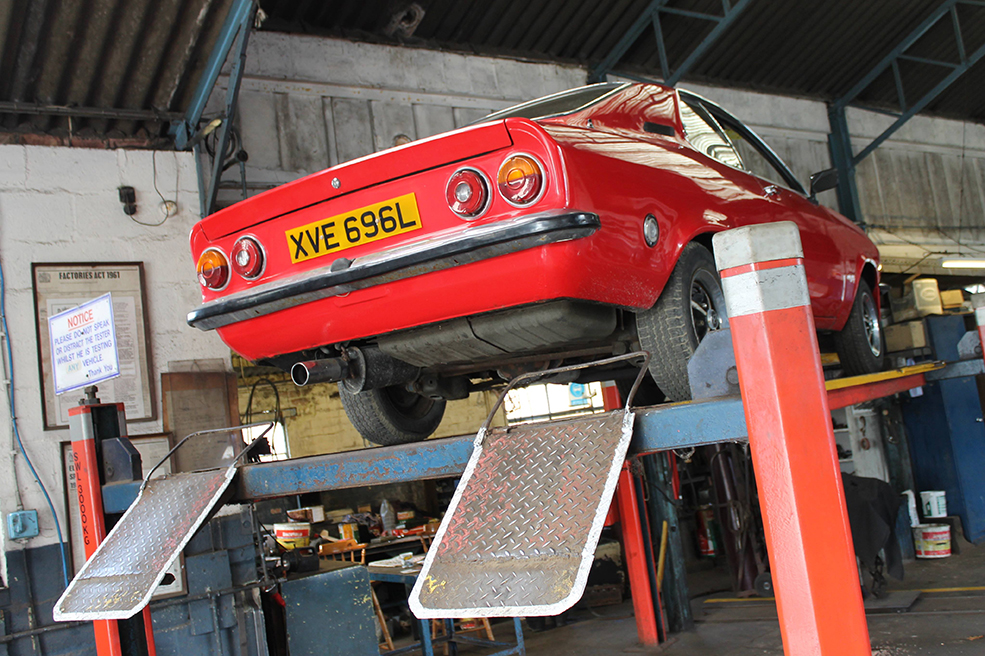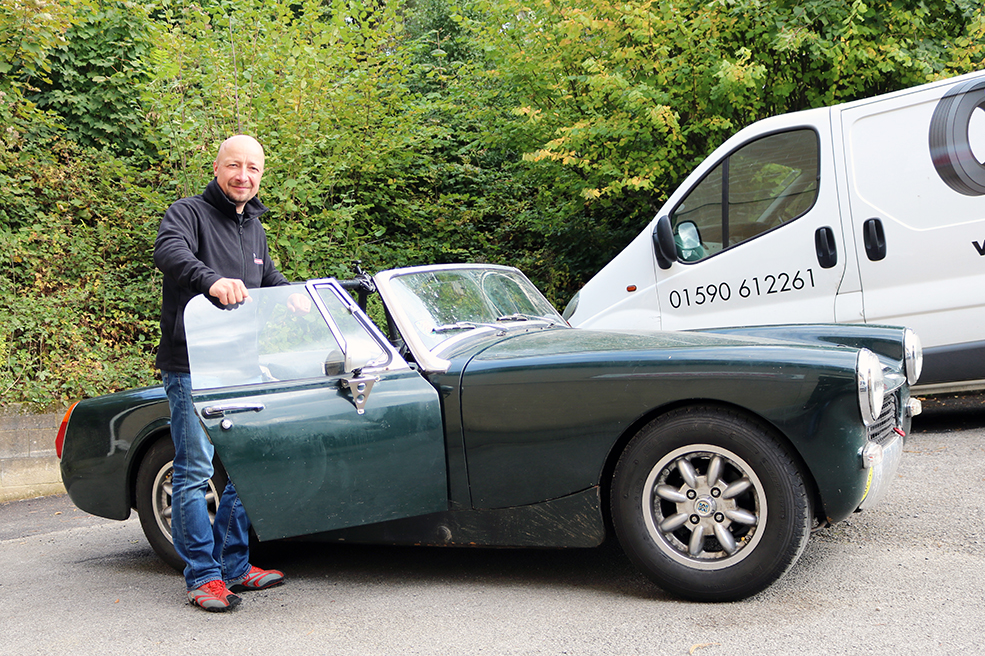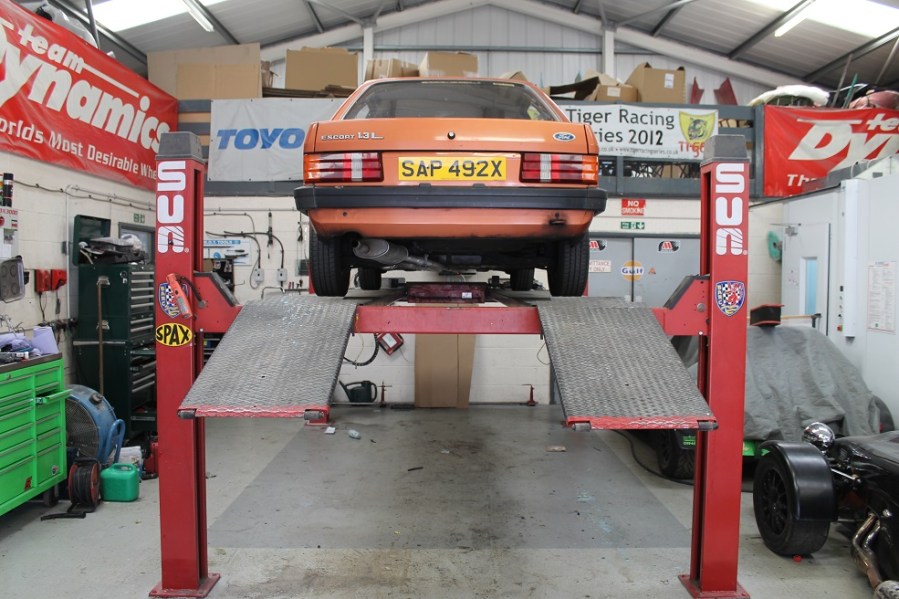Classic car organisations are being urged to lobby the government to introduce a basic safety test for older vehicles amidst high MoT failure rates
Fears over unsafe classics on our roads have gathered pace following new data from the DVSA, which has revealed that almost one in five of the cars voluntary submitted for an MoT test since the beginning of 2019 have initially failed.
Back in May 2018 MoT exemption was controversially brought in line with historic vehicle tax (VED), meaning vehicles built more than 40 years ago no longer need to be tested providing no ‘substantial changes’ have been made in the last 30 years. However, owners are still responsible for keeping their vehicles in roadworthy condition, and failure to do so can result in a fine of up to £2500 and three penalty points.
Data obtained via a Freedom of Information request by BookMyGarage.com showed 121,204 classic cars aged over 40 years old were still MoT tested voluntarily between January 2019 and June 2021, despite a lack of legal obligation to do so. Reasons for this could include submitting a classic for a test as a cost-effective way for a professional to get a car on a ramp and cast an eye over its condition for the owner’s peace of mind, or perhaps reassure a perspective buyer that all is well with their potential purchase.
Of the cars tested, the average failure rate was 18.4 per cent. Dodge had the highest failure rate with over half (55.2 per cent) failing foul, but only 143 examples were submitted. There are, however, some big European brands in the test, with 31.9 per cent of the 19,154 Volkswagens tested failing, and 24.6 per cent of the 8817 Morris vehicles also falling at the initial hurdle. Out of all the brands in the top 10 for failure rates, the most tested was MG with 22,974 vehicles. The failure rate for these was 20.8 per cent, with historic rival Triumph not far behind at 18.8 per cent over 15,494 examples tested.

Almost a fifth of classic cars aged over 40 years old voluntarily MoT tested between January 2019 and June 2021 recorded a failure.
Other brands in the top 10 were Reliant, Porsche and Fiat. However, numerous renowned manufacturers also had clean sheet records with zero recorded failures, including Bentley, Wolseley, Saab, Peugeot, Opel, Toyota and TVR. DVSA data showed newer classic cars were more likely to fail than their older counterparts, with 1970s cars are three times as likely to fail than those from the 1950s. It also showed just 41,000 historic vehicles were tested, down 32 per cent on 2019, likely due to the impacts of the pandemic.
When the MoT exemption was brought in, the Department for Transport justified the decision by saying that historic vehicles are generally well maintained and used mostly for short journeys, and that the modern MoT is no longer relevant to cars over 40 years old. But while there is some truth in this, and the historic vehicle failure rate of 18.4 per cent compares well to a typical initial failure rate of around 32 per cent across all class 3 and 4 vehicles (cars, vans and passenger vehicles with up to 12 seats), the fact remains that almost a fifth of classic cars failed their voluntary MoT tests.
It is important to note that these are only the cars that are voluntary submitted for testing, suggesting an owner who is conscious enough to ensure their car is kept roadworthy. We can only speculate on the condition of vehicles not submitted for tests.
It all serves to highlight the importance of carrying out regular checks and keeping on top of maintenance. Our advice, as ever, remains to ensure your vehicle is professionally inspected on a regular basis if you aren’t 100 per cent confident about maintaining it yourself. Even if you are, another pair of eyes could be vital in highlighting something you’ve missed. That way, fines can be avoided and, potentially, serious accidents.
Calls for industry bodies to lobby government
Bodies like the Federation of British Historic Vehicle Clubs (FBHVC) and the newly-formed Historic & Classic Vehicle Alliance (HCVA) are being urged to lobby the government to introduce a basic safety test for older vehicles, with a call for insurance companies to collectively raise policy premiums for vehicles without an MoT in the meantime.
The calls are being made by Ben Field, Managing Director of Vintage Tyres, who took to the firm’s website to discuss the issues surrounding MoT exemption. Back in May 2018 MoT exemption was controversially brought in line with historic vehicle tax (VED), meaning vehicles built more than 40 years ago no longer need to be tested providing no ‘substantial changes’ have been made in the last 30 years.
Ben reckons a consultation regarding the decision “read like a done deal against the MoT from the start” and that the representative from the Department for Transport responsible for organising the consultation, collating responses and drafting the report didn’t have a clue about what the MoT really involved.

Ben Field at Vintage Tyres believes it’s time for a rethink on MoT exemption.
“Surely the MoT was the backbone of vehicle safety, that second pair of eyes and hands checking that everything was in order,” he argued. “Yes, the MoT was a bind, and yes it probably wasn’t entirely fit for purpose when it came to older vehicles. But to remove it because it wasn’t entirely fit for purpose? Was that really the best answer?”
The need for some form of safety test has never been more important, Ben claims, having witnessed a steep decline in the standard of tyres coming in for changing since 2017. He also said that colleagues across the industry are getting to serious mechanical and structural problems far later than they would if a test were flagging problems on a yearly basis.
“Just recently we had a classic in for a set of tyres,” he added. “Those on the car were all 40 years old and they were visibly shot. Three were radials, one was a crossply. The car itself was brimming with body filler and was one wet winter away from disintegration. Yet this car had just been sold on (wthout MoT, of course) for a five-figure sum. And this sort of thing is not untypical.”
As well as calling for new government safety to take place in future, Vintage Tyres believes that aforementioned collective percentage increase in insurance premiums if a vehicle has no MoT should be applied in the meantime, and that everyone selling classic vehicles, trade or private, should have to produce a valid MoT certificate before sale.






